ISART 2022 Speakers, Presenters, and Organizers
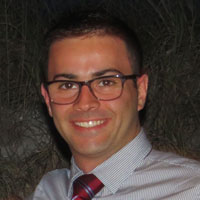 Mohamad Omar Al Kalaa is a Staff Fellow Electrical Engineer with the Center for Devices and Radiological Health (CDRH), U.S. Food and Drug Administration (FDA). He received the M.Sc. and Ph.D. degrees in electrical and computer engineering from the University of Oklahoma in 2014 and 2016, respectively. His research interests include the wireless-enabled healthcare applications, wireless coexistence of technologies in unlicensed spectrum bands, and wireless medical device testing methodologies. Dr. Al Kalaa currently serves as the co-chair of the medical device innovation consortium (MDIC) 5G-enabled medical device working group and the secretary of the ANSI C63.27 standard for evaluation of wireless coexistence working group.
Mohamad Omar Al Kalaa is a Staff Fellow Electrical Engineer with the Center for Devices and Radiological Health (CDRH), U.S. Food and Drug Administration (FDA). He received the M.Sc. and Ph.D. degrees in electrical and computer engineering from the University of Oklahoma in 2014 and 2016, respectively. His research interests include the wireless-enabled healthcare applications, wireless coexistence of technologies in unlicensed spectrum bands, and wireless medical device testing methodologies. Dr. Al Kalaa currently serves as the co-chair of the medical device innovation consortium (MDIC) 5G-enabled medical device working group and the secretary of the ANSI C63.27 standard for evaluation of wireless coexistence working group.
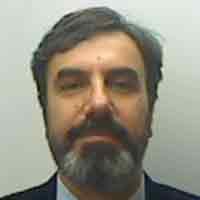 Reza Arefi leads Emerging Spectrum Strategies and Planning at Intel. In his role, he develops market-driven spectrum and regulatory strategies that support Intel’s existing and future products. Reza has been actively contributing to standards, industry and international spectrum regulations since 1998, often in leadership roles. Reza’s ITU-R leadership roles have led to development of several ITU-R Reports and Recommendations, latest of which is the now widely used Recommendation ITU-R M.2101 on modeling of 4G/5G systems for use in spectrum sharing studies. He currently chairs the Joint Working Group 3K-3M on Clutter Loss in ITU-R SG3. In addition, he has served as Intel Corporation’s delegate to several World Radio Conferences. He represents Intel in FCC’s Technological Advisory Council (TAC) and is a member of CSMAC. Currently, Reza is an Executive Board member and Vice President of Global mobile Suppliers Association (GSA) and a member of GSA’s Spectrum Group Management Team. He is also a vice chair of Next G Alliance’s Spectrum Working Group, focused on defining 6G spectrum priorities for North America. Reza holds several patents in the areas of mm-wave technologies and spectrum sharing—advancements that have proven to be critical to the realization of 5G. He is a Senior Member of IEEE and a member of IEEE-SA. He holds an EE bachelor’s degree from Sharif University of Technology and a master’s degree from West Virginia University. Reza is presently focused on identifying optimal spectral vehicles and necessary regulatory developments to enable the next generation mobile use cases, including innovative consumer, enterprise, and industrial solutions.
Reza Arefi leads Emerging Spectrum Strategies and Planning at Intel. In his role, he develops market-driven spectrum and regulatory strategies that support Intel’s existing and future products. Reza has been actively contributing to standards, industry and international spectrum regulations since 1998, often in leadership roles. Reza’s ITU-R leadership roles have led to development of several ITU-R Reports and Recommendations, latest of which is the now widely used Recommendation ITU-R M.2101 on modeling of 4G/5G systems for use in spectrum sharing studies. He currently chairs the Joint Working Group 3K-3M on Clutter Loss in ITU-R SG3. In addition, he has served as Intel Corporation’s delegate to several World Radio Conferences. He represents Intel in FCC’s Technological Advisory Council (TAC) and is a member of CSMAC. Currently, Reza is an Executive Board member and Vice President of Global mobile Suppliers Association (GSA) and a member of GSA’s Spectrum Group Management Team. He is also a vice chair of Next G Alliance’s Spectrum Working Group, focused on defining 6G spectrum priorities for North America. Reza holds several patents in the areas of mm-wave technologies and spectrum sharing—advancements that have proven to be critical to the realization of 5G. He is a Senior Member of IEEE and a member of IEEE-SA. He holds an EE bachelor’s degree from Sharif University of Technology and a master’s degree from West Virginia University. Reza is presently focused on identifying optimal spectral vehicles and necessary regulatory developments to enable the next generation mobile use cases, including innovative consumer, enterprise, and industrial solutions.
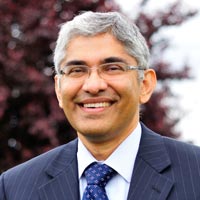 Kumar Balachandran is a Principal Researcher and has an appointment as Expert in Wireless Communications Networks with Ericsson Research, where he has worked since 1995. He has a BE (Hons) in Electronics and Communications Engineering from the Regional Engineering College, Tiruchirappalli, acquired in 1986 and holds an M.S. and PhD in Computer and Systems Engineering from Rensselaer Polytechnic Institute in Troy, NY, awarded in 1988 and 1992 respectively. Kumar has worked on a variety of areas in mobile communications spanning the Physical Layer, signal processing, radio resource management, spectrum sharing, protocol design, and systems engineering spanning all five generations of mobile cellular technologies. He has been involved with shared spectrum as a prominent contributor to the specification of the Citizens Broadband Radio Service (CBRS) in the WInnForum and the OnGo Alliance. He is currently working on research problems pertaining to radio resilience and system reliability. He is active in working with Ericsson’s technology strategy and takes an interest in competitive analysis of mobile technology. He has served as a technical expert on the FCC’s Technological Advisory Council during previous years on spectrum topics (including shared spectrum), receiver performance, and 5G&IoT. He is currently a delegate to the Next G Alliance and actively contributes to the Spectrum and Technology Working Groups. He has contributed to Ericsson’s outreach to the FCC and the NTIA on several occasions with technical arguments favoring the release of spectrum for use by the mobile industry. He has served as a panelist and invited speaker at several prominent conferences, is well published, has contributed to several books, and has been named on over 100 issued US patents as inventor.
Kumar Balachandran is a Principal Researcher and has an appointment as Expert in Wireless Communications Networks with Ericsson Research, where he has worked since 1995. He has a BE (Hons) in Electronics and Communications Engineering from the Regional Engineering College, Tiruchirappalli, acquired in 1986 and holds an M.S. and PhD in Computer and Systems Engineering from Rensselaer Polytechnic Institute in Troy, NY, awarded in 1988 and 1992 respectively. Kumar has worked on a variety of areas in mobile communications spanning the Physical Layer, signal processing, radio resource management, spectrum sharing, protocol design, and systems engineering spanning all five generations of mobile cellular technologies. He has been involved with shared spectrum as a prominent contributor to the specification of the Citizens Broadband Radio Service (CBRS) in the WInnForum and the OnGo Alliance. He is currently working on research problems pertaining to radio resilience and system reliability. He is active in working with Ericsson’s technology strategy and takes an interest in competitive analysis of mobile technology. He has served as a technical expert on the FCC’s Technological Advisory Council during previous years on spectrum topics (including shared spectrum), receiver performance, and 5G&IoT. He is currently a delegate to the Next G Alliance and actively contributes to the Spectrum and Technology Working Groups. He has contributed to Ericsson’s outreach to the FCC and the NTIA on several occasions with technical arguments favoring the release of spectrum for use by the mobile industry. He has served as a panelist and invited speaker at several prominent conferences, is well published, has contributed to several books, and has been named on over 100 issued US patents as inventor.
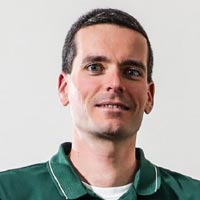 Charles Baylis is a Professor of Electrical and Computer Engineering at Baylor University. At Baylor he directs the Wireless and Microwave Circuits and Systems Program, launched in 2008 to provide wireless and microwave education and research in a caring, Christian environment. His research interests include reconfigurable circuit and system technologies enabling adaptive spectrum use for radar systems and allowing coexistence between wireless communications and passive sensing systems. His research has been funded by the Army Research Laboratory, National Science Foundation, Office of Naval Research, and Naval Research Laboratory.
Charles Baylis is a Professor of Electrical and Computer Engineering at Baylor University. At Baylor he directs the Wireless and Microwave Circuits and Systems Program, launched in 2008 to provide wireless and microwave education and research in a caring, Christian environment. His research interests include reconfigurable circuit and system technologies enabling adaptive spectrum use for radar systems and allowing coexistence between wireless communications and passive sensing systems. His research has been funded by the Army Research Laboratory, National Science Foundation, Office of Naval Research, and Naval Research Laboratory.
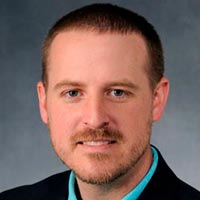 Shannon D. Blunt is the Roy A. Roberts Distinguished Professor of EECS at the University of Kansas (KU), and Director of both the KU Radar Systems Lab (RSL) and Kansas Applied Research Lab (KARL). From 2002-2005 he was with the Radar Division of the Naval Research Laboratory (NRL). His research interests are sensor signal processing and system design with emphasis on waveform diversity and spectrum sharing, having made various contributions deployed in operational radar and sonar systems. He received an AFOSR Young Investigator Award, the IEEE/AESS Nathanson Memorial Radar Award, became Fellow of the IEEE for “contributions to radar waveform diversity and design”, was appointed to the U.S. President’s Council of Advisors on Science & Technology (PCAST), and received the IET Radar, Sonar & Navigation Premium Award. He has over 190 publications, 18 patents, and co-edited the books Principles of Waveform Diversity & Design and Radar & Communication Spectrum Sharing. He has been a subject matter expert on radar spectrum management and sharing for DARPA, the Air Force's S&T 2030 Initiative, the National Spectrum Consortium, the Office of the Under Secretary of Defense for Research & Engineering (OUSD(R&E)), and the White House Office of Science & Technology Policy (OSTP).
Shannon D. Blunt is the Roy A. Roberts Distinguished Professor of EECS at the University of Kansas (KU), and Director of both the KU Radar Systems Lab (RSL) and Kansas Applied Research Lab (KARL). From 2002-2005 he was with the Radar Division of the Naval Research Laboratory (NRL). His research interests are sensor signal processing and system design with emphasis on waveform diversity and spectrum sharing, having made various contributions deployed in operational radar and sonar systems. He received an AFOSR Young Investigator Award, the IEEE/AESS Nathanson Memorial Radar Award, became Fellow of the IEEE for “contributions to radar waveform diversity and design”, was appointed to the U.S. President’s Council of Advisors on Science & Technology (PCAST), and received the IET Radar, Sonar & Navigation Premium Award. He has over 190 publications, 18 patents, and co-edited the books Principles of Waveform Diversity & Design and Radar & Communication Spectrum Sharing. He has been a subject matter expert on radar spectrum management and sharing for DARPA, the Air Force's S&T 2030 Initiative, the National Spectrum Consortium, the Office of the Under Secretary of Defense for Research & Engineering (OUSD(R&E)), and the White House Office of Science & Technology Policy (OSTP).
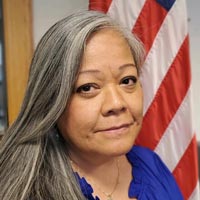 Joy Cantalupo is the acting Chief of the Advanced Access Initiatives (AAI) Branch within the Strategic Planning Division (SPD) at the Defense Information Systems Agency (DISA) Defense Spectrum Organization (DSO). She provides leadership and oversight for two Spectrum Relocation Fund (SRF) funded activities: the DISA/DSO Advanced Wireless Services -3 (AWS-3) 1755-1780 MHz Transition Plan and 3450-3550 MHz Transition Plan, responsible for the development, fielding, and sustainment of electromagnetic spectrum sharing systems, and development of innovative techniques and solutions for electromagnetic spectrum coexistence between DoD and 4G/5G commercial services. Prior to joining DISA in 2012, Ms. Cantalupo worked for IIT Research Institute/Alion for 27 years, responsible for the development, maintenance, and management of the center-wide modeling and simulation capabilities for the Joint Spectrum Center (JSC)/DSO. She also served as deputy Program Manager for the DSO’s Emerging Spectrum Technology (EST) Program, overseeing the assessment of the spectrum-related implications of EST, acquisition of capabilities to support analysis of these technologies, and development of an EST Evaluation Engine concept and prototype to support the transformation of spectrum operations required to accommodate EST systems and enable seamless and assured spectrum access. She then worked as a senior engineer for URS Corporation, supporting the DSO’s dynamic spectrum access (DSA) activities and the development of the DoD DSA Roadmap.
Joy Cantalupo is the acting Chief of the Advanced Access Initiatives (AAI) Branch within the Strategic Planning Division (SPD) at the Defense Information Systems Agency (DISA) Defense Spectrum Organization (DSO). She provides leadership and oversight for two Spectrum Relocation Fund (SRF) funded activities: the DISA/DSO Advanced Wireless Services -3 (AWS-3) 1755-1780 MHz Transition Plan and 3450-3550 MHz Transition Plan, responsible for the development, fielding, and sustainment of electromagnetic spectrum sharing systems, and development of innovative techniques and solutions for electromagnetic spectrum coexistence between DoD and 4G/5G commercial services. Prior to joining DISA in 2012, Ms. Cantalupo worked for IIT Research Institute/Alion for 27 years, responsible for the development, maintenance, and management of the center-wide modeling and simulation capabilities for the Joint Spectrum Center (JSC)/DSO. She also served as deputy Program Manager for the DSO’s Emerging Spectrum Technology (EST) Program, overseeing the assessment of the spectrum-related implications of EST, acquisition of capabilities to support analysis of these technologies, and development of an EST Evaluation Engine concept and prototype to support the transformation of spectrum operations required to accommodate EST systems and enable seamless and assured spectrum access. She then worked as a senior engineer for URS Corporation, supporting the DSO’s dynamic spectrum access (DSA) activities and the development of the DoD DSA Roadmap.
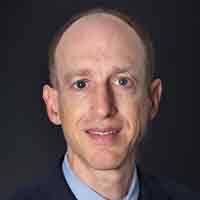 John Chapin is Special Advisor for Spectrum at the National Science Foundation, a role in which he serves as program officer in the Electromagnetic Spectrum unit and advisor on strategic spectrum issues to NSF leadership. Dr. Chapin’s previous roles include: Program Manager at the Defense Advanced Research Projects Agency (DARPA), where he initiated and led programs in spectrum sharing; Chief Technical Officer at Vanu, Inc., a provider of cellular radio access networks based on software-defined radios; and Assistant Professor at MIT. Dr. Chapin received his Ph.D. in Computer Science from Stanford University in 1997.
John Chapin is Special Advisor for Spectrum at the National Science Foundation, a role in which he serves as program officer in the Electromagnetic Spectrum unit and advisor on strategic spectrum issues to NSF leadership. Dr. Chapin’s previous roles include: Program Manager at the Defense Advanced Research Projects Agency (DARPA), where he initiated and led programs in spectrum sharing; Chief Technical Officer at Vanu, Inc., a provider of cellular radio access networks based on software-defined radios; and Assistant Professor at MIT. Dr. Chapin received his Ph.D. in Computer Science from Stanford University in 1997.
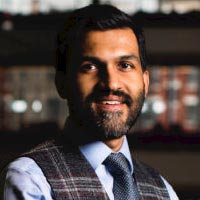 Kaushik Chowdhury is Professor in the Electrical and Computer Engineering Department, Associate Director of the Institute for the Wireless IoT at Northeastern University, Boston and co-PI on The Ohio State University-led NSF AI-Edge Institute from Northeastern. He is the winner of the U.S. Presidential Early Career Award for Scientists and Engineers (PECASE) in 2017, the Defense Advanced Research Projects Agency Young Faculty Award in 2017, the Office of Naval Research Director of Research Early Career Award in 2016, and the National Science Foundation (NSF) CAREER award in 2015. He is the recipient of best paper awards at IEEE GLOBECOM'19, DySPAN'19, INFOCOM'17, ICC'13,'12,'09, and ICNC'13. He serves as area editor for IEEE Trans. on Mobile Computing, Elsevier Computer Networks Journal, IEEE Trans. on Networking, and IEEE Trans. on Wireless Communications. He co-directs the operations of Colosseum RF/network emulator, as well as the Platforms for Advanced Wireless Research project office. Prof. Chowdhury has served in several leadership roles, including Chair of the IEEE Technical Committee on Simulation, and as Technical Program Chair for IEEE INFOCOM 2021, IEEE CCNC 2021, IEEE DySPAN 2021, and ACM MobiHoc 2022. His research interests are in applied machine learning for wireless communications and networks, data-centric IoT architectures, large-scale experimentation, and networked robotics.
Kaushik Chowdhury is Professor in the Electrical and Computer Engineering Department, Associate Director of the Institute for the Wireless IoT at Northeastern University, Boston and co-PI on The Ohio State University-led NSF AI-Edge Institute from Northeastern. He is the winner of the U.S. Presidential Early Career Award for Scientists and Engineers (PECASE) in 2017, the Defense Advanced Research Projects Agency Young Faculty Award in 2017, the Office of Naval Research Director of Research Early Career Award in 2016, and the National Science Foundation (NSF) CAREER award in 2015. He is the recipient of best paper awards at IEEE GLOBECOM'19, DySPAN'19, INFOCOM'17, ICC'13,'12,'09, and ICNC'13. He serves as area editor for IEEE Trans. on Mobile Computing, Elsevier Computer Networks Journal, IEEE Trans. on Networking, and IEEE Trans. on Wireless Communications. He co-directs the operations of Colosseum RF/network emulator, as well as the Platforms for Advanced Wireless Research project office. Prof. Chowdhury has served in several leadership roles, including Chair of the IEEE Technical Committee on Simulation, and as Technical Program Chair for IEEE INFOCOM 2021, IEEE CCNC 2021, IEEE DySPAN 2021, and ACM MobiHoc 2022. His research interests are in applied machine learning for wireless communications and networks, data-centric IoT architectures, large-scale experimentation, and networked robotics.
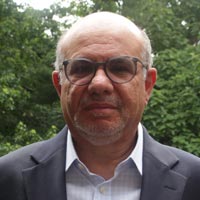 Chrysanthos Chrysanthou has been the Branch Chief at the Technical Analysis Branch under EMC Division in FCC Office of Engineering and Technology since early 2020. He is currently focusing his activities on RF propagation modeling and analysis, RF exposure to humans, electromagnetic compatibility analysis, and broadband data analytics. From 2015 to 2020, he served as Chief Engineer in several acquisition programs under U.S. Army PEO Enterprise Information Systems. From 2006 to 2015, he led engineering teams at U.S. Army CERDEC Space & Terrestrial Communications Directorate and PM Electronic Warfare. From these positions, he was involved in the development of RF spectrum management and electronic warfare software tools, Dynamic Spectrum Access (DSA) technologies, spectrum sharing and reuse techniques, RF propagation, and interference modeling. Previously, he was a senior system engineer from 1988 to 2006 in Network Electromagnetic Compatibility and Spectrum Management at Telcordia in Piscataway, NJ. He holds a BS in EE, a MS in EE and a MS in Electrophysics, all from Polytechnic Institute of NYU. As a research fellow, he developed theoretical models to predict path loss in urban environments for cellular planning. He has published several research papers and presented speeches to professional societies on RF propagation modeling and other topics.
Chrysanthos Chrysanthou has been the Branch Chief at the Technical Analysis Branch under EMC Division in FCC Office of Engineering and Technology since early 2020. He is currently focusing his activities on RF propagation modeling and analysis, RF exposure to humans, electromagnetic compatibility analysis, and broadband data analytics. From 2015 to 2020, he served as Chief Engineer in several acquisition programs under U.S. Army PEO Enterprise Information Systems. From 2006 to 2015, he led engineering teams at U.S. Army CERDEC Space & Terrestrial Communications Directorate and PM Electronic Warfare. From these positions, he was involved in the development of RF spectrum management and electronic warfare software tools, Dynamic Spectrum Access (DSA) technologies, spectrum sharing and reuse techniques, RF propagation, and interference modeling. Previously, he was a senior system engineer from 1988 to 2006 in Network Electromagnetic Compatibility and Spectrum Management at Telcordia in Piscataway, NJ. He holds a BS in EE, a MS in EE and a MS in Electrophysics, all from Polytechnic Institute of NYU. As a research fellow, he developed theoretical models to predict path loss in urban environments for cellular planning. He has published several research papers and presented speeches to professional societies on RF propagation modeling and other topics.
 Andrew Clegg is the Spectrum Engineering Lead for Google. He is presently focused primarily on identifying spectrum sharing opportunities wireless networks and services. Prior to joining Google, he served as the spectrum manager for the U.S. National Science Foundation for 11 years. At NSF, he founded the Enhancing Access to the Radio Spectrum (EARS) program, a $50 million program dedicated to funding academic and small business research focused on improving spectrum efficiency and access. Prior to NSF, he was a Lead Member of Technical Staff at what is now AT&T Mobility. He has over 20 years' experience in national and international spectrum management for both government and commercial applications, and was a member of the U.S. delegation to two World Radiocommunication Conferences.
Andrew Clegg is the Spectrum Engineering Lead for Google. He is presently focused primarily on identifying spectrum sharing opportunities wireless networks and services. Prior to joining Google, he served as the spectrum manager for the U.S. National Science Foundation for 11 years. At NSF, he founded the Enhancing Access to the Radio Spectrum (EARS) program, a $50 million program dedicated to funding academic and small business research focused on improving spectrum efficiency and access. Prior to NSF, he was a Lead Member of Technical Staff at what is now AT&T Mobility. He has over 20 years' experience in national and international spectrum management for both government and commercial applications, and was a member of the U.S. delegation to two World Radiocommunication Conferences.
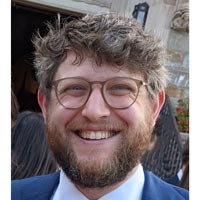 Eli Cohen is an engineer with Palantir technologies, supporting contracts across civil US Government work. Currently, he supports the FAA on harnessing data for aviation safety and most recently, managing the interaction of the 5G rollout on air traffic. Previously, he supported the White House, CDC, HHS, and other agencies during the first year of the COVID-19 pandemic by helping to create the most comprehensive public health data asset in existence, HHS Protect. With Protect, more than 200 disparate data sources are brought together into one ecosystem that integrates data across federal, state, and local governments and the healthcare industry. It provides a holistic view of the U.S. healthcare system so decision makers informed by Protect have information to guide action and save lives with a data-driven COVID-19 response.
Eli Cohen is an engineer with Palantir technologies, supporting contracts across civil US Government work. Currently, he supports the FAA on harnessing data for aviation safety and most recently, managing the interaction of the 5G rollout on air traffic. Previously, he supported the White House, CDC, HHS, and other agencies during the first year of the COVID-19 pandemic by helping to create the most comprehensive public health data asset in existence, HHS Protect. With Protect, more than 200 disparate data sources are brought together into one ecosystem that integrates data across federal, state, and local governments and the healthcare industry. It provides a holistic view of the U.S. healthcare system so decision makers informed by Protect have information to guide action and save lives with a data-driven COVID-19 response.
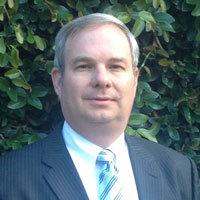 Charles Cooper is Associate Administrator in NTIA’s Office of Spectrum Management. He leads the agency’s work on national and international spectrum policy issues, and oversees spectrum management efforts for federal agencies. He is responsible for frequency assignment and certification, and other strategic planning functions including development of innovation approaches to spectrum sharing. Before joining NTIA in July, 2019, Cooper was the Enforcement Bureau Field Director at the Federal Communications Commission (FCC) where he managed the nationwide enforcement of spectrum interference affecting public safety communications, FCC licensees and Federal agencies. Prior to serving as Field Director, Cooper was District Director of the FCC’s Los Angeles Field Office. Cooper also served as senior engineer and partner with du Treil, Lundin, and Rackley, Inc., an engineering firm specializing in radio frequency coordination and design. Cooper is a recognized subject matter expert on engineering principles applicable to a wide mix of communications technologies. He is a member and two-term past president of the Association of Federal Communications Consulting Engineers (AFCCE).
Charles Cooper is Associate Administrator in NTIA’s Office of Spectrum Management. He leads the agency’s work on national and international spectrum policy issues, and oversees spectrum management efforts for federal agencies. He is responsible for frequency assignment and certification, and other strategic planning functions including development of innovation approaches to spectrum sharing. Before joining NTIA in July, 2019, Cooper was the Enforcement Bureau Field Director at the Federal Communications Commission (FCC) where he managed the nationwide enforcement of spectrum interference affecting public safety communications, FCC licensees and Federal agencies. Prior to serving as Field Director, Cooper was District Director of the FCC’s Los Angeles Field Office. Cooper also served as senior engineer and partner with du Treil, Lundin, and Rackley, Inc., an engineering firm specializing in radio frequency coordination and design. Cooper is a recognized subject matter expert on engineering principles applicable to a wide mix of communications technologies. He is a member and two-term past president of the Association of Federal Communications Consulting Engineers (AFCCE).
 Michael Cotton is Division Chief of the Telecommunications Theory Division and program leader of NTIA’s Spectrum Management R&D and Spectrum Monitoring Pilot programs at the Institute for Telecommunication Sciences (ITS) in Boulder, Colorado. Michael joined NTIA/ITS in 1992. He has been involved in a broad range of research topics including applied electromagnetics, atmospheric effects on radiowave propagation, radio channel measurement and theory, interference effects on digital receivers, ultrawideband technologies, spectrum sharing with Federal systems, and spectrum occupancy measurements. Michael has received DOC Gold Medal Awards for research and engineering achievement in the development of national policies for UWB technologies in 2002 and 3.5 GHz spectrum sharing in 2015. In 2010 and 2011, Mr. Cotton was the General Chair for the International Symposium on Advanced Radio Technologies (ISART) on Developing Forward-Thinking Rules and Processes to Fully Exploit Spectrum Resources. Michael has authored or co–authored over thirty technical publications. He received a B.S. degree in Aerospace Engineering in 1992 and an M.S. degree in Electrical Engineering with an emphasis on electromagnetics in 1999, both from the University of Colorado at Boulder.
Michael Cotton is Division Chief of the Telecommunications Theory Division and program leader of NTIA’s Spectrum Management R&D and Spectrum Monitoring Pilot programs at the Institute for Telecommunication Sciences (ITS) in Boulder, Colorado. Michael joined NTIA/ITS in 1992. He has been involved in a broad range of research topics including applied electromagnetics, atmospheric effects on radiowave propagation, radio channel measurement and theory, interference effects on digital receivers, ultrawideband technologies, spectrum sharing with Federal systems, and spectrum occupancy measurements. Michael has received DOC Gold Medal Awards for research and engineering achievement in the development of national policies for UWB technologies in 2002 and 3.5 GHz spectrum sharing in 2015. In 2010 and 2011, Mr. Cotton was the General Chair for the International Symposium on Advanced Radio Technologies (ISART) on Developing Forward-Thinking Rules and Processes to Fully Exploit Spectrum Resources. Michael has authored or co–authored over thirty technical publications. He received a B.S. degree in Aerospace Engineering in 1992 and an M.S. degree in Electrical Engineering with an emphasis on electromagnetics in 1999, both from the University of Colorado at Boulder.
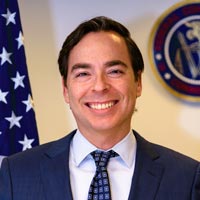 Bill Davenport is Senior Director, Government Affairs, at Cisco Systems, Inc. In this role, Bill is responsible for advising and representing the company on a wide range of communications issues, including spectrum policy. Prior to joining Cisco, Bill worked at the Federal Communications Commission as Chief of Staff and Senior Legal Advisor to Commissioner Geoffrey Starks, where he oversaw the office's operations and advised the Commissioner on wireless and international issues. Bill also has served in senior leadership positions throughout the FCC's Enforcement Bureau, most recently as the manager responsible for spectrum enforcement investigations. In addition to his FCC experience, Bill also has worked as a senior executive at a satellite company as well as an associate at two major law firms.
Bill Davenport is Senior Director, Government Affairs, at Cisco Systems, Inc. In this role, Bill is responsible for advising and representing the company on a wide range of communications issues, including spectrum policy. Prior to joining Cisco, Bill worked at the Federal Communications Commission as Chief of Staff and Senior Legal Advisor to Commissioner Geoffrey Starks, where he oversaw the office's operations and advised the Commissioner on wireless and international issues. Bill also has served in senior leadership positions throughout the FCC's Enforcement Bureau, most recently as the manager responsible for spectrum enforcement investigations. In addition to his FCC experience, Bill also has worked as a senior executive at a satellite company as well as an associate at two major law firms.
 Alan Davidson, Assistant Secretary of Commerce for Communications and Information and NTIA Administrator, is an Internet policy expert with over 20 years of experience as an executive, public interest advocate, technologist, and attorney. He was most recently a Senior Advisor at the Mozilla Foundation, a global nonprofit that promotes openness, innovation, and participation on the Internet. He was previously Mozilla’s Vice President of Global Policy, Trust and Security, where he led public policy and privacy teams promoting an open Internet and a healthy web. Alan served in the Obama-Biden Administration as the first Director of Digital Economy at the U.S. Department of Commerce. He started Google’s public policy office in Washington, D.C., leading government relations and policy in North and South America for seven years until 2012. Alan has been a long-time leader in the Internet nonprofit community, serving as Director of New America’s Open Technology Institute where he worked to promote equitable broadband access and adoption. As Associate Director of the Center for Democracy and Technology, Alan was an advocate for civil liberties and human rights online in some of the earliest Internet policy debates. Alan currently resides with his family in Chevy Chase, Maryland. He is a graduate of the Massachusetts Institute of Technology and the Yale Law School, and is a member of the District of Columbia Bar.
Alan Davidson, Assistant Secretary of Commerce for Communications and Information and NTIA Administrator, is an Internet policy expert with over 20 years of experience as an executive, public interest advocate, technologist, and attorney. He was most recently a Senior Advisor at the Mozilla Foundation, a global nonprofit that promotes openness, innovation, and participation on the Internet. He was previously Mozilla’s Vice President of Global Policy, Trust and Security, where he led public policy and privacy teams promoting an open Internet and a healthy web. Alan served in the Obama-Biden Administration as the first Director of Digital Economy at the U.S. Department of Commerce. He started Google’s public policy office in Washington, D.C., leading government relations and policy in North and South America for seven years until 2012. Alan has been a long-time leader in the Internet nonprofit community, serving as Director of New America’s Open Technology Institute where he worked to promote equitable broadband access and adoption. As Associate Director of the Center for Democracy and Technology, Alan was an advocate for civil liberties and human rights online in some of the earliest Internet policy debates. Alan currently resides with his family in Chevy Chase, Maryland. He is a graduate of the Massachusetts Institute of Technology and the Yale Law School, and is a member of the District of Columbia Bar.
 JP (Pierre) de Vries is scholar in residence at the ATLAS Institute and distinguished advisor at the Silicon Flatirons Center, both at the University of Colorado Boulder. His current work explores the intersection of digital technology and mythology. He is a visiting senior scientist at the Institute for Networked Systems of RWTH Aachen University. He was co-director of the Spectrum Policy Initiative at CU Boulder, 2010-2021. He was a technology advisor to Harris Wiltshire & Grannis LLP, Washington DC (2007–2010) and senior fellow at the Annenberg Center for Communication of the University of Southern California (2006–2007). Prior to this he held various positions with Microsoft Corp. in Redmond, including chief of incubation and senior director of advanced technology and policy.
JP (Pierre) de Vries is scholar in residence at the ATLAS Institute and distinguished advisor at the Silicon Flatirons Center, both at the University of Colorado Boulder. His current work explores the intersection of digital technology and mythology. He is a visiting senior scientist at the Institute for Networked Systems of RWTH Aachen University. He was co-director of the Spectrum Policy Initiative at CU Boulder, 2010-2021. He was a technology advisor to Harris Wiltshire & Grannis LLP, Washington DC (2007–2010) and senior fellow at the Annenberg Center for Communication of the University of Southern California (2006–2007). Prior to this he held various positions with Microsoft Corp. in Redmond, including chief of incubation and senior director of advanced technology and policy.
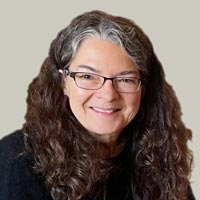 Rebecca Dorch serves as Senior Spectrum Policy Analyst at NTIA’s Institute for Telecommunication Sciences. Ms. Dorch facilitates and coordinates various spectrum sharing research projects, both within ITS and with other agencies such as the National Science Foundation, Department of Defense, and Federal Communications Commission. She manages the ITS conformance testing program for the Spectrum Access System and Environmental Sensing Capability components of the 3.5 GHz Citizens Broadband Radio Service. She is General Chair of the current International Symposium on Advanced Radio Technologies (ISART), having served as ISART Vice-Chair in 2020 and 2018, on the Technical Planning Committees in 2017 and 2016, and as tutorial moderator in 2020, 2017, and 2016. Prior to joining NTIA in March of 2016, Ms. Dorch served for thirteen years as the Western Region Director of the Federal Communications Commission’s Enforcement Bureau, overseeing resolution of harmful interference affecting communications infrastructure. Ms. Dorch was previously involved in policy and rulemaking matters as Deputy Chief of the FCC Office of Engineering and Technology, and in legal and competition matters as Deputy Chief of the Competition Division of the FCC’s Office of General Counsel. Ms. Dorch began her career in private law practice with the firms of Bryan Cave, and Wilner and Scheiner. She earned her JD at the Washington University School of Law in St. Louis, Missouri, and her BA (Phi Beta Kappa) at the University of Illinois.
Rebecca Dorch serves as Senior Spectrum Policy Analyst at NTIA’s Institute for Telecommunication Sciences. Ms. Dorch facilitates and coordinates various spectrum sharing research projects, both within ITS and with other agencies such as the National Science Foundation, Department of Defense, and Federal Communications Commission. She manages the ITS conformance testing program for the Spectrum Access System and Environmental Sensing Capability components of the 3.5 GHz Citizens Broadband Radio Service. She is General Chair of the current International Symposium on Advanced Radio Technologies (ISART), having served as ISART Vice-Chair in 2020 and 2018, on the Technical Planning Committees in 2017 and 2016, and as tutorial moderator in 2020, 2017, and 2016. Prior to joining NTIA in March of 2016, Ms. Dorch served for thirteen years as the Western Region Director of the Federal Communications Commission’s Enforcement Bureau, overseeing resolution of harmful interference affecting communications infrastructure. Ms. Dorch was previously involved in policy and rulemaking matters as Deputy Chief of the FCC Office of Engineering and Technology, and in legal and competition matters as Deputy Chief of the Competition Division of the FCC’s Office of General Counsel. Ms. Dorch began her career in private law practice with the firms of Bryan Cave, and Wilner and Scheiner. She earned her JD at the Washington University School of Law in St. Louis, Missouri, and her BA (Phi Beta Kappa) at the University of Illinois.
 Edward Drocella is the Chief of the National Telecommunications and Information Administration (NTIA), Office of Spectrum Management, Spectrum Engineering and Analysis Division. Mr. Drocella has been with NTIA for twenty nine years. During his tenor with NTIA Mr. Drocella has worked on various projects related to spectrum management including: reallocation of federal spectrum for emerging technologies, protection of the Global Positioning System radio frequency spectrum, software defined and cognitive radio technologies, ultrawideband technologies, web-based spectrum coordination, and the protection of military radar systems by implementing new sharing technologies such as Dynamic Frequency Selection. Mr. Drocella has been the lead engineer in several technical studies identifying spectrum-sharing arrangements between federal and commercial systems. Mr. Drocella currently is the Vice Chair of the NTIA Intedepartment Radio Advisory Committee and Chair of the Technical Subcommittee. Before joining NTIA Mr. Drocella worked as a contractor for the Department of Defense. Mr. Drocella received his Bachelor of Science degree and Master of Science degree in Electrical Engineering from the Johns Hopkins University.
Edward Drocella is the Chief of the National Telecommunications and Information Administration (NTIA), Office of Spectrum Management, Spectrum Engineering and Analysis Division. Mr. Drocella has been with NTIA for twenty nine years. During his tenor with NTIA Mr. Drocella has worked on various projects related to spectrum management including: reallocation of federal spectrum for emerging technologies, protection of the Global Positioning System radio frequency spectrum, software defined and cognitive radio technologies, ultrawideband technologies, web-based spectrum coordination, and the protection of military radar systems by implementing new sharing technologies such as Dynamic Frequency Selection. Mr. Drocella has been the lead engineer in several technical studies identifying spectrum-sharing arrangements between federal and commercial systems. Mr. Drocella currently is the Vice Chair of the NTIA Intedepartment Radio Advisory Committee and Chair of the Technical Subcommittee. Before joining NTIA Mr. Drocella worked as a contractor for the Department of Defense. Mr. Drocella received his Bachelor of Science degree and Master of Science degree in Electrical Engineering from the Johns Hopkins University.
 Ian Fogg is VP Analysis at Opensignal. At Opensignal, Ian and his team develop new insights and analysis using Opensignal’s mobile analytics data. Prior to joining Opensignal, Ian created product strategy recommendations and market analysis reports for 15 years at Forrester, IHS Markit and Jupiter Research. As Senior Director at IHS, Ian led the team responsible for forecasting mobile network infrastructure, telecom operators, mobile apps, smartwatches and smartphones. Ian has nine years of experience in product and marketing roles at mobile operator Three, cable operator Cable & Wireless and device maker Psion. Ian has end-to-end expertise across the mobile and telecom market. He is an energetic and passionate speaker and is regularly quoted in business media, including CNBC, Financial Times, BBC, AP and Reuters.
Ian Fogg is VP Analysis at Opensignal. At Opensignal, Ian and his team develop new insights and analysis using Opensignal’s mobile analytics data. Prior to joining Opensignal, Ian created product strategy recommendations and market analysis reports for 15 years at Forrester, IHS Markit and Jupiter Research. As Senior Director at IHS, Ian led the team responsible for forecasting mobile network infrastructure, telecom operators, mobile apps, smartwatches and smartphones. Ian has nine years of experience in product and marketing roles at mobile operator Three, cable operator Cable & Wireless and device maker Psion. Ian has end-to-end expertise across the mobile and telecom market. He is an energetic and passionate speaker and is regularly quoted in business media, including CNBC, Financial Times, BBC, AP and Reuters.
 Mark Gibson has almost 40 years of spectrum management experience and is responsible for developing domestic and international business opportunities for CommScope. In addition to leading technical and business development efforts for numerous wireless and spectrum-related products and services, Mark has led efforts to address spectrum sharing between Federal government and commercial users. He leads CommScope’s CBRS efforts on the Spectrum Access System/Environmental Sensing Capability and is a board member of the CBRS Alliance and an officer on the board of the Wireless Innovation Forum. Mark is a member of the Commerce Spectrum Management Advisory Committee, where he has also co-chaired working groups related to spectrum sharing and data exchange issues. He has led spectrum management efforts including the development of the SAS and ESC, TV White Space, spectrum sharing analysis protocols and sharing criteria, as well as development of Comsearch’s engineering services and software products. Mark has led efforts in working with the American Hospital Association as their technical partner for WMTS frequency coordination. Mark has authored several papers on spectrum sharing and relocation and has advised numerous wireless participants in their system design. Mark is a Life Member of IEEE, amateur radio licensee, and instrument-rated commercial pilot.
Mark Gibson has almost 40 years of spectrum management experience and is responsible for developing domestic and international business opportunities for CommScope. In addition to leading technical and business development efforts for numerous wireless and spectrum-related products and services, Mark has led efforts to address spectrum sharing between Federal government and commercial users. He leads CommScope’s CBRS efforts on the Spectrum Access System/Environmental Sensing Capability and is a board member of the CBRS Alliance and an officer on the board of the Wireless Innovation Forum. Mark is a member of the Commerce Spectrum Management Advisory Committee, where he has also co-chaired working groups related to spectrum sharing and data exchange issues. He has led spectrum management efforts including the development of the SAS and ESC, TV White Space, spectrum sharing analysis protocols and sharing criteria, as well as development of Comsearch’s engineering services and software products. Mark has led efforts in working with the American Hospital Association as their technical partner for WMTS frequency coordination. Mark has authored several papers on spectrum sharing and relocation and has advised numerous wireless participants in their system design. Mark is a Life Member of IEEE, amateur radio licensee, and instrument-rated commercial pilot.
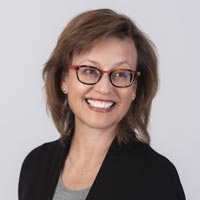 Anna Gomez is a partner at Wiley Rein and former National Telecommunications and Information Administration (NTIA) Deputy Administrator who specializes in a wide range of spectrum licensing issues and regulatory, policy, and transactional matters related to domestic and international telecommunications and uncrewed aircraft systems. In addition, Anna served for 12 years in various positions at the FCC, including Senior Legal Advisor to then-Chairman William E. Kennard and Deputy Chief of the International Bureau, where she developed and implemented Commission policy on international telecommunications and satellite spectrum. Anna is co-chair of Wiley’s Uncrewed Aircraft Systems Group and currently serves on the FCC’s Communications Equity and Diversity Council.
Anna Gomez is a partner at Wiley Rein and former National Telecommunications and Information Administration (NTIA) Deputy Administrator who specializes in a wide range of spectrum licensing issues and regulatory, policy, and transactional matters related to domestic and international telecommunications and uncrewed aircraft systems. In addition, Anna served for 12 years in various positions at the FCC, including Senior Legal Advisor to then-Chairman William E. Kennard and Deputy Chief of the International Bureau, where she developed and implemented Commission policy on international telecommunications and satellite spectrum. Anna is co-chair of Wiley’s Uncrewed Aircraft Systems Group and currently serves on the FCC’s Communications Equity and Diversity Council.
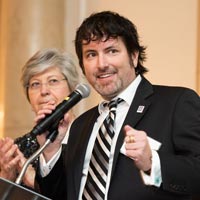 Rob Henry is a Principal Risk Manager at the MITRE Corporation and a leads MITRE’s risk analysis and management practice area. He has over twenty-five years of risk analysis and management experience supporting a diverse set of sponsors (Departments of Defense, Homeland Security, Veterans Affairs, Health and Human Services, Treasury, Commerce, Transportation, and State and US intelligence agencies) and MITRE research and corporate initiatives. Rob has developed, tailored, and implemented a wide variety of risk analysis and management methodologies, approaches and tools supporting enterprise risk management, capability-based risk assessments, risk analytics, risk metrics, network analysis, systems of systems risk, program risk management, cost risk analysis, risk-informed portfolio analysis, economic analysis, cost/benefit analysis, analysis of alternatives, and trade-space analysis. Rob has conducted research and led efforts focused on applying advanced risk analytics to spectrum sharing and management.
Rob Henry is a Principal Risk Manager at the MITRE Corporation and a leads MITRE’s risk analysis and management practice area. He has over twenty-five years of risk analysis and management experience supporting a diverse set of sponsors (Departments of Defense, Homeland Security, Veterans Affairs, Health and Human Services, Treasury, Commerce, Transportation, and State and US intelligence agencies) and MITRE research and corporate initiatives. Rob has developed, tailored, and implemented a wide variety of risk analysis and management methodologies, approaches and tools supporting enterprise risk management, capability-based risk assessments, risk analytics, risk metrics, network analysis, systems of systems risk, program risk management, cost risk analysis, risk-informed portfolio analysis, economic analysis, cost/benefit analysis, analysis of alternatives, and trade-space analysis. Rob has conducted research and led efforts focused on applying advanced risk analytics to spectrum sharing and management.
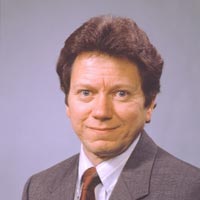 David R. Jackson obtained the B.S.E.E. and M.S.E.E. degrees from the University of Missouri, Columbia, in 1979 and 1981, respectively, and the Ph.D. degree in electrical engineering from the University of California, Los Angeles, in 1985. He is a Professor in the Department of Electrical and Computer Engineering at the University of Houston, Houston, TX, where he has been since 1985. His present research interests include microstrip antennas and circuits, leaky-wave antennas, leakage and radiation effects in microwave integrated circuits, periodic structures, and electromagnetic compatibility and interference. He presently serves on the IEEE Antennas and Propagation Society (AP-S) Committee on Promoting Equality (COPE) and on the MTT-1 (Microwave Field Theory) Technical Committee of the Microwave Theory and Techniques Society. Previously, he has served as the Chair of USNC-URSI, the U.S. National Committee (USNC) for URSI, the International Union of Radio Science. He has been chair of the Distinguished Lecturer Committee of the IEEE AP-S, the chair of the Transnational Committee of the IEEE AP-S, the chair of the Chapter Activities Committee of the AP-S, a Distinguished Lecturer for the AP-S, a member of the AdCom for the AP-S, and an Associate Editor for the IEEE Transactions on Antennas and Propagation.
David R. Jackson obtained the B.S.E.E. and M.S.E.E. degrees from the University of Missouri, Columbia, in 1979 and 1981, respectively, and the Ph.D. degree in electrical engineering from the University of California, Los Angeles, in 1985. He is a Professor in the Department of Electrical and Computer Engineering at the University of Houston, Houston, TX, where he has been since 1985. His present research interests include microstrip antennas and circuits, leaky-wave antennas, leakage and radiation effects in microwave integrated circuits, periodic structures, and electromagnetic compatibility and interference. He presently serves on the IEEE Antennas and Propagation Society (AP-S) Committee on Promoting Equality (COPE) and on the MTT-1 (Microwave Field Theory) Technical Committee of the Microwave Theory and Techniques Society. Previously, he has served as the Chair of USNC-URSI, the U.S. National Committee (USNC) for URSI, the International Union of Radio Science. He has been chair of the Distinguished Lecturer Committee of the IEEE AP-S, the chair of the Transnational Committee of the IEEE AP-S, the chair of the Chapter Activities Committee of the AP-S, a Distinguished Lecturer for the AP-S, a member of the AdCom for the AP-S, and an Associate Editor for the IEEE Transactions on Antennas and Propagation.
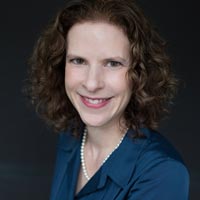 Carolyn Kahn serves as Chief Spectrum Economist at The MITRE Corporation, where she works across government, industry, and non-profit organizations to help solve the most difficult spectrum problems for a safer world. She has made groundbreaking technical contributions by applying economic principles to electromagnetic spectrum challenges to help optimize use of this critical national resource. Her work has informed spectrum decisions at the highest levels of government and international organizations. Ms. Kahn’s research has included developing whole-of-nation solutions, including in areas of broadband delivery and adoption, 6G, spectrum valuation, spectrum macroeconomic modeling, risk-informed sharing and management, and O-RAN. Ms. Kahn has served as a member of the Department of Commerce Spectrum Management Advisory Committee (CSMAC) since 2016 and recently co-chaired its Unmanned Aircraft Spectrum Subcommittee. She is a member of the ATIS Next G Alliance Societal and Economic Needs Working Group and Policy Committee. Ms. Kahn received the 2019 national Women of Color (WOC) Science, Technology, Engineering, and Mathematics (STEM) award for Outstanding Technical Contribution in Industry. She holds an MBA in Finance and Marketing from McGill University and a BA with high honors in Economics and International Studies from Brandeis University.
Carolyn Kahn serves as Chief Spectrum Economist at The MITRE Corporation, where she works across government, industry, and non-profit organizations to help solve the most difficult spectrum problems for a safer world. She has made groundbreaking technical contributions by applying economic principles to electromagnetic spectrum challenges to help optimize use of this critical national resource. Her work has informed spectrum decisions at the highest levels of government and international organizations. Ms. Kahn’s research has included developing whole-of-nation solutions, including in areas of broadband delivery and adoption, 6G, spectrum valuation, spectrum macroeconomic modeling, risk-informed sharing and management, and O-RAN. Ms. Kahn has served as a member of the Department of Commerce Spectrum Management Advisory Committee (CSMAC) since 2016 and recently co-chaired its Unmanned Aircraft Spectrum Subcommittee. She is a member of the ATIS Next G Alliance Societal and Economic Needs Working Group and Policy Committee. Ms. Kahn received the 2019 national Women of Color (WOC) Science, Technology, Engineering, and Mathematics (STEM) award for Outstanding Technical Contribution in Industry. She holds an MBA in Finance and Marketing from McGill University and a BA with high honors in Economics and International Studies from Brandeis University.
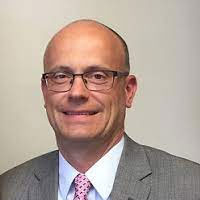 Derek Khlopin is Deputy Associate Administrator in NTIA's Office of Spectrum Management (OSM). Mr. Khlopin leads spectrum management efforts for the federal agencies, NTIA coordination groups such as IRAC and PPSG, and spectrum policy initiatives. Derek has been with NTIA since 2015 as a Senior Advisor to the Assistant Secretary and NTIA Administrator, spending most of his time collaborating with OSM and ITS. More recently, he added to his responsibilities as Acting Chief of OSM's Spectrum Affairs & Information Division. Prior to joining NTIA, Derek spent most of his career in the private sector after a start at the FCC, including in senior government affairs positions with Nokia. Derek is a graduate of the Catholic University of America School of Law.
Derek Khlopin is Deputy Associate Administrator in NTIA's Office of Spectrum Management (OSM). Mr. Khlopin leads spectrum management efforts for the federal agencies, NTIA coordination groups such as IRAC and PPSG, and spectrum policy initiatives. Derek has been with NTIA since 2015 as a Senior Advisor to the Assistant Secretary and NTIA Administrator, spending most of his time collaborating with OSM and ITS. More recently, he added to his responsibilities as Acting Chief of OSM's Spectrum Affairs & Information Division. Prior to joining NTIA, Derek spent most of his career in the private sector after a start at the FCC, including in senior government affairs positions with Nokia. Derek is a graduate of the Catholic University of America School of Law.
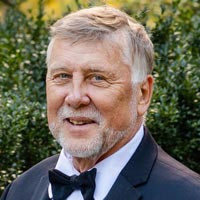 Kalle Kontson has 48 years of C4ISR and spectrum-dependent systems engineering experience. He is currently a member of the Principal Professional Staff at Johns Hopkins University Applied Physics Laboratory (APL). Since 2015 he has supported the Defense Information Systems Agency’s Defense Spectrum Organization, focusing on development of spectrum sharing and coexistence analysis methods. Prior to 2015 Mr. Kontson provided engineering support to various research projects as a member of the APL Asymmetric Operations Department. Prior to joining APL Mr. Kontson served as Vice President and Operations Manager at Alion Science and Technology, managing Alion’s Spectrum Management and Electromagnetic Environment Effects Operations. In a concurrent assignment he served as the Chief Scientist for Alion’s Engineering and Information Technology Sector. He has served on several DoD and other Government advisory groups, including the FCC Technological Advisory Council and the Army Science Board. He also served on IEEE standards development bodies; specifically the IEEE 1900 series of standards for Dynamic Spectrum Management Networks. His educational background includes a Juris Doctorate from the University of Baltimore School of Law, and Bachelor of Science and Master of Engineering degrees from Rensselaer Polytechnic Institute.
Kalle Kontson has 48 years of C4ISR and spectrum-dependent systems engineering experience. He is currently a member of the Principal Professional Staff at Johns Hopkins University Applied Physics Laboratory (APL). Since 2015 he has supported the Defense Information Systems Agency’s Defense Spectrum Organization, focusing on development of spectrum sharing and coexistence analysis methods. Prior to 2015 Mr. Kontson provided engineering support to various research projects as a member of the APL Asymmetric Operations Department. Prior to joining APL Mr. Kontson served as Vice President and Operations Manager at Alion Science and Technology, managing Alion’s Spectrum Management and Electromagnetic Environment Effects Operations. In a concurrent assignment he served as the Chief Scientist for Alion’s Engineering and Information Technology Sector. He has served on several DoD and other Government advisory groups, including the FCC Technological Advisory Council and the Army Science Board. He also served on IEEE standards development bodies; specifically the IEEE 1900 series of standards for Dynamic Spectrum Management Networks. His educational background includes a Juris Doctorate from the University of Baltimore School of Law, and Bachelor of Science and Master of Engineering degrees from Rensselaer Polytechnic Institute.
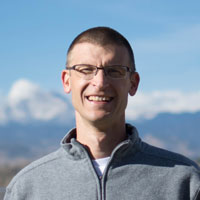 William ("Billy") Kozma, Jr. is a Computer Engineer in the Telecommunications Theory Division at the Institute for Telecommunication Sciences, having joined NTIA/ITS in 2013 after previous work at Microsoft and the Department of the Navy’s Naval Information Warfare Center (NIWC, formerly SPAWAR). Billy works primarily within the area of radio wave propagation, including bringing modern data analysis and software capabilities to improving modeling technics. Billy leads both the internal Research and Development ITS Propagation Modeling project, which focuses on core fundamental research improvements, as well as a new DoD-sponsored Mid-Band Propagation Modeling project, focused on improving modeling within the 3.5 GHz band to support spectrum sharing and coexistence. Billy is also heavily involved in ITU-R Study Group 3 (Radio Wave Propagation), serving as both the Head of the U.S. Delegation to ITU-R Study Group 3 as well as the Chair of the group focused on aeronautical propagation (Recommendation ITU-R P.528). Billy received his B.S. degree in Electrical Engineering in 2007 from the University of Pittsburgh at Johnstown, and his M.S. degree in Electrical and Computer Engineering in 2009 from the University of Arizona.
William ("Billy") Kozma, Jr. is a Computer Engineer in the Telecommunications Theory Division at the Institute for Telecommunication Sciences, having joined NTIA/ITS in 2013 after previous work at Microsoft and the Department of the Navy’s Naval Information Warfare Center (NIWC, formerly SPAWAR). Billy works primarily within the area of radio wave propagation, including bringing modern data analysis and software capabilities to improving modeling technics. Billy leads both the internal Research and Development ITS Propagation Modeling project, which focuses on core fundamental research improvements, as well as a new DoD-sponsored Mid-Band Propagation Modeling project, focused on improving modeling within the 3.5 GHz band to support spectrum sharing and coexistence. Billy is also heavily involved in ITU-R Study Group 3 (Radio Wave Propagation), serving as both the Head of the U.S. Delegation to ITU-R Study Group 3 as well as the Chair of the group focused on aeronautical propagation (Recommendation ITU-R P.528). Billy received his B.S. degree in Electrical Engineering in 2007 from the University of Pittsburgh at Johnstown, and his M.S. degree in Electrical and Computer Engineering in 2009 from the University of Arizona.
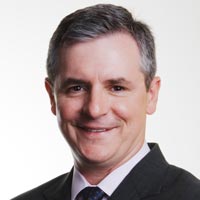 John W. Kuzin is Vice President of Spectrum Policy and Regulatory Counsel with Qualcomm Incorporated. He oversees Qualcomm’s global spectrum policy working closely with the company’s regional spectrum leads, business leads, and worldwide R&D teams. John represents Qualcomm on regulatory matters before the FCC, ISED Canada, and other agencies. His areas of expertise include new spectrum allocations, licensed and unlicensed spectrum regulations, 5G and 6G technology, RF equipment authorization, positioning technologies, Cellular Vehicle-to-Everything, unmanned aircraft systems, and device accessibility. Prior to joining Qualcomm, John worked at Wiley Rein LLP in Washington, DC, representing clients before the FCC and state commissions on a broad collection of wireless and wireline matters. While at Wiley Rein, John also litigated complex technology and intellectual property cases in federal and state courts. Following law school, John worked for the Weil Gotshal & Manges firm in New York City on patent litigation and licensing matters. In addition to his legal experience, John is an electrical engineer, having worked for six years as a project manager and a senior systems engineer with Bell Communications Research (“Bellcore”) in Morristown, New Jersey. John holds a B.E. in electrical engineering from The Cooper Union, an M.S.E. from Princeton University, and a J.D. from New York University Law School. He also is a registered patent attorney, a patent holder, and a Senior Member of the IEEE.
John W. Kuzin is Vice President of Spectrum Policy and Regulatory Counsel with Qualcomm Incorporated. He oversees Qualcomm’s global spectrum policy working closely with the company’s regional spectrum leads, business leads, and worldwide R&D teams. John represents Qualcomm on regulatory matters before the FCC, ISED Canada, and other agencies. His areas of expertise include new spectrum allocations, licensed and unlicensed spectrum regulations, 5G and 6G technology, RF equipment authorization, positioning technologies, Cellular Vehicle-to-Everything, unmanned aircraft systems, and device accessibility. Prior to joining Qualcomm, John worked at Wiley Rein LLP in Washington, DC, representing clients before the FCC and state commissions on a broad collection of wireless and wireline matters. While at Wiley Rein, John also litigated complex technology and intellectual property cases in federal and state courts. Following law school, John worked for the Weil Gotshal & Manges firm in New York City on patent litigation and licensing matters. In addition to his legal experience, John is an electrical engineer, having worked for six years as a project manager and a senior systems engineer with Bell Communications Research (“Bellcore”) in Morristown, New Jersey. John holds a B.E. in electrical engineering from The Cooper Union, an M.S.E. from Princeton University, and a J.D. from New York University Law School. He also is a registered patent attorney, a patent holder, and a Senior Member of the IEEE.
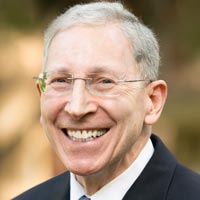 Evan Kwerel is Senior Economic Advisor in the Office of Economics and Analytics at the Federal Communications Commission. He has worked on a broad range of spectrum policy issues and has been a proponent of market-based approaches to spectrum management. He conceived the “broadcast incentive auction”—the world’s first two-sided auction to repurpose spectrum—and helped shape the bill to authorize it. After Congress enacted authorizing legislation, he was the key policy advisor on the Incentive Auction Task Force. In 1993, after Congress granted the FCC auction authority, he was the primary architect of the FCC's innovative simultaneous multiple round auction methodology. He was also a major intellectual force in the development of price caps as a replacement for rate-of-return regulation and reforming the regulation of international telecom facilities and rates. Dr. Kwerel received his B.A. in economics from the University of Pennsylvania in 1972 and his Ph.D. in economics from the Massachusetts Institute of Technology in 1976. From 1976 to 1982, he was an assistant professor of economics at Yale University. In 1981 he was a Brookings Economic Policy Fellow, and from 1982 to 1983, he was a senior economist with the President's Council of Economic Advisers. He joined the FCC in 1983.
Evan Kwerel is Senior Economic Advisor in the Office of Economics and Analytics at the Federal Communications Commission. He has worked on a broad range of spectrum policy issues and has been a proponent of market-based approaches to spectrum management. He conceived the “broadcast incentive auction”—the world’s first two-sided auction to repurpose spectrum—and helped shape the bill to authorize it. After Congress enacted authorizing legislation, he was the key policy advisor on the Incentive Auction Task Force. In 1993, after Congress granted the FCC auction authority, he was the primary architect of the FCC's innovative simultaneous multiple round auction methodology. He was also a major intellectual force in the development of price caps as a replacement for rate-of-return regulation and reforming the regulation of international telecom facilities and rates. Dr. Kwerel received his B.A. in economics from the University of Pennsylvania in 1972 and his Ph.D. in economics from the Massachusetts Institute of Technology in 1976. From 1976 to 1982, he was an assistant professor of economics at Yale University. In 1981 he was a Brookings Economic Policy Fellow, and from 1982 to 1983, he was a senior economist with the President's Council of Economic Advisers. He joined the FCC in 1983.
 Nick LaSorte is an engineer at the U.S. Department of Commerce (DoC), National Telecommunications and Information Administration (NTIA) in the Office of Spectrum Management (OSM).
Nick LaSorte is an engineer at the U.S. Department of Commerce (DoC), National Telecommunications and Information Administration (NTIA) in the Office of Spectrum Management (OSM).
 Howard McDonald retired from the Defense Information Systems Agency (DISA) Defense Spectrum Organization (DSO) on 31 May 2022 after 14 years of Government Service as the Branch Chief for the Advanced Access Initiative Branch within the Strategic Planning Division. During his time at DISA DSO, he led the development of the Department of Defense (DoD)’s first-ever Dynamic Spectrum Access (DSA) roadmap. Most recently, Mr. McDonald led the development, fielding, and sustainment of electromagnetic spectrum sharing systems, pioneering techniques and solutions that formed the basis of electromagnetic spectrum coexistence between DoD and 4G/5G commercial services. He has represented DISA DSO at numerous national and international conferences and on a variety of panels, serving as a panelist or moderator. Prior to his government service, Mr. McDonald was an engineering manager for a government contractor.
Howard McDonald retired from the Defense Information Systems Agency (DISA) Defense Spectrum Organization (DSO) on 31 May 2022 after 14 years of Government Service as the Branch Chief for the Advanced Access Initiative Branch within the Strategic Planning Division. During his time at DISA DSO, he led the development of the Department of Defense (DoD)’s first-ever Dynamic Spectrum Access (DSA) roadmap. Most recently, Mr. McDonald led the development, fielding, and sustainment of electromagnetic spectrum sharing systems, pioneering techniques and solutions that formed the basis of electromagnetic spectrum coexistence between DoD and 4G/5G commercial services. He has represented DISA DSO at numerous national and international conferences and on a variety of panels, serving as a panelist or moderator. Prior to his government service, Mr. McDonald was an engineering manager for a government contractor.
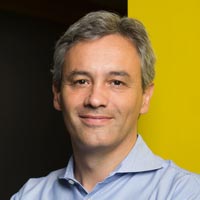 Tommaso Melodia is the William Lincoln Smith Chair Professor with the Department of Electrical and Computer Engineering at Northeastern University in Boston. He is also the Founding Director of the Institute for the Wireless Internet of Things and the Director of Research for the PAWR Project Office. He received his Laurea (integrated BS and MS) from the University of Rome - La Sapienza and his Ph.D. in Electrical and Computer Engineering from the Georgia Institute of Technology in 2007. He is an IEEE Fellow and recipient of the National Science Foundation CAREER award. He was named a College of Engineering Faculty Fellow in 2017 and received the Søren Buus Outstanding Research Award in 2018 - the highest research award in the College of Engineering at Northeastern University. Prof. Melodia has served as Associate Editor fo IEEE Transactions on Wireless Communications, IEEE Transactions on Mobile Computing, Elsevier Computer Networks, among others. He has served as Technical Program Committee Chair for IEEE Infocom 2018, General Chair for IEEE SECON 2019, ACM Nanocom 2019, and ACM WUWnet 2014. Prof. Melodia is the Director of Research for the Platforms for Advanced Wireless Research (PAWR) Project Office, a $100M public-private partnership to establish 4 city-scale platforms for wireless research to advance the US wireless ecosystem in years to come. The PAWR Project Office is co-lead by Northeastern University and US Ignite and is overseeing the overall deployment and operation of the PAWR Program. Prof. Melodia’s research on modeling, optimization, and experimental evaluation of Internet-of-Things and wireless networked systems has been funded by the National Science Foundation, the Air Force Research Laboratory the Office of Naval Research, DARPA, and the Army Research Laboratory.
Tommaso Melodia is the William Lincoln Smith Chair Professor with the Department of Electrical and Computer Engineering at Northeastern University in Boston. He is also the Founding Director of the Institute for the Wireless Internet of Things and the Director of Research for the PAWR Project Office. He received his Laurea (integrated BS and MS) from the University of Rome - La Sapienza and his Ph.D. in Electrical and Computer Engineering from the Georgia Institute of Technology in 2007. He is an IEEE Fellow and recipient of the National Science Foundation CAREER award. He was named a College of Engineering Faculty Fellow in 2017 and received the Søren Buus Outstanding Research Award in 2018 - the highest research award in the College of Engineering at Northeastern University. Prof. Melodia has served as Associate Editor fo IEEE Transactions on Wireless Communications, IEEE Transactions on Mobile Computing, Elsevier Computer Networks, among others. He has served as Technical Program Committee Chair for IEEE Infocom 2018, General Chair for IEEE SECON 2019, ACM Nanocom 2019, and ACM WUWnet 2014. Prof. Melodia is the Director of Research for the Platforms for Advanced Wireless Research (PAWR) Project Office, a $100M public-private partnership to establish 4 city-scale platforms for wireless research to advance the US wireless ecosystem in years to come. The PAWR Project Office is co-lead by Northeastern University and US Ignite and is overseeing the overall deployment and operation of the PAWR Program. Prof. Melodia’s research on modeling, optimization, and experimental evaluation of Internet-of-Things and wireless networked systems has been funded by the National Science Foundation, the Air Force Research Laboratory the Office of Naval Research, DARPA, and the Army Research Laboratory.
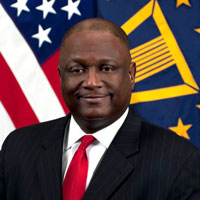 Frederick D. Moorefield, Jr. is the Deputy Chief Information Officer (DCIO) for Command, Control, and Communications (C3), Office of the Secretary of Defense, Chief Information Officer. As DCIO, Mr. Moorefield provides technical expertise, oversight and broad guidance on policy, programmatic and technical issues relating to C3 to integrate and synchronize defense-wide communications programs. He also advises on efforts to achieve and maintain information dominance for the Department of Defense (DoD). He manages efforts defining DoD policies and strategies for design, architecture, interoperability standards, capability development and sustainment of critical command and control and communications for non-nuclear strategic strike, integrated missile defense, Defense and National Leadership Command Capabilities, and spectrum. Mr. Moorefield joined Federal service in 1989 in the Air Force as a civil servant, where he served for 19 years doing Research and Development and Acquisition at Wright Patterson Air Force Base Air Force Research Labs. He also served in the Defense Information Systems Agency (DISA) at the Joint Spectrum Center for four years. He served as Technical Director and Director of Strategic Planning at the Air Force Spectrum Management Office and has been a member of the Senior Executive Corps since 2012. His education includes a Bachelor degree in mathematics from Wilberforce University (Ohio) and a Bachelor and Master of Electrical Engineering degree from the University of Dayton (Ohio).
Frederick D. Moorefield, Jr. is the Deputy Chief Information Officer (DCIO) for Command, Control, and Communications (C3), Office of the Secretary of Defense, Chief Information Officer. As DCIO, Mr. Moorefield provides technical expertise, oversight and broad guidance on policy, programmatic and technical issues relating to C3 to integrate and synchronize defense-wide communications programs. He also advises on efforts to achieve and maintain information dominance for the Department of Defense (DoD). He manages efforts defining DoD policies and strategies for design, architecture, interoperability standards, capability development and sustainment of critical command and control and communications for non-nuclear strategic strike, integrated missile defense, Defense and National Leadership Command Capabilities, and spectrum. Mr. Moorefield joined Federal service in 1989 in the Air Force as a civil servant, where he served for 19 years doing Research and Development and Acquisition at Wright Patterson Air Force Base Air Force Research Labs. He also served in the Defense Information Systems Agency (DISA) at the Joint Spectrum Center for four years. He served as Technical Director and Director of Strategic Planning at the Air Force Spectrum Management Office and has been a member of the Senior Executive Corps since 2012. His education includes a Bachelor degree in mathematics from Wilberforce University (Ohio) and a Bachelor and Master of Electrical Engineering degree from the University of Dayton (Ohio).
 Eric Nelson joined the Institute for Telecommunication Sciences (ITS) in 2002 and has served as Acting Director of the laboratory for the past 11 months. Eric oversaw the creation of a Project 25 digital land mobile radio testing laboratory which contributed to standards development within TIA in support of public safety stakeholders. His team spearheaded creation of the P25 Compliance Assessment Program to investigate the conformance, performance, and interoperability of Project 25 equipment. In 2007 he became the Chief of the Spectrum and Propagation Measurements Division at ITS. This division performs tests and measurements of radiofrequency systems that contribute to certification of radar systems, mitigation of interference to Federal spectrum dependent systems, and establishment and refinement of spectrum sharing related rulemakings, including the recent AWS-3 and 3.5 GHz auctions. Recent research is focused on improvements of electromagnetic compatibility models through measurements of radio wave pathloss in cluttered environments, the impacts of signal aggregation on Federal systems from commercial systems sharing spectrum, and early detection and alerting of interference events to meteorological satellite earth stations. Prior to joining ITS he held systems engineering and supervisory positions in metropolitan, rural, and airborne cellular companies. He received his M.S. in Electrical Engineering from the University of Washington in 1993 with an emphasis in applied electromagnetics.
Eric Nelson joined the Institute for Telecommunication Sciences (ITS) in 2002 and has served as Acting Director of the laboratory for the past 11 months. Eric oversaw the creation of a Project 25 digital land mobile radio testing laboratory which contributed to standards development within TIA in support of public safety stakeholders. His team spearheaded creation of the P25 Compliance Assessment Program to investigate the conformance, performance, and interoperability of Project 25 equipment. In 2007 he became the Chief of the Spectrum and Propagation Measurements Division at ITS. This division performs tests and measurements of radiofrequency systems that contribute to certification of radar systems, mitigation of interference to Federal spectrum dependent systems, and establishment and refinement of spectrum sharing related rulemakings, including the recent AWS-3 and 3.5 GHz auctions. Recent research is focused on improvements of electromagnetic compatibility models through measurements of radio wave pathloss in cluttered environments, the impacts of signal aggregation on Federal systems from commercial systems sharing spectrum, and early detection and alerting of interference events to meteorological satellite earth stations. Prior to joining ITS he held systems engineering and supervisory positions in metropolitan, rural, and airborne cellular companies. He received his M.S. in Electrical Engineering from the University of Washington in 1993 with an emphasis in applied electromagnetics.
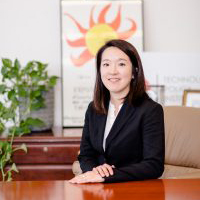 Sarah Oh Lam is a Senior Fellow at the Technology Policy Institute. Lam completed her PhD in Economics from George Mason University, and holds a JD from GMU and a BS in Management Science and Engineering from Stanford University. She was previously the Operations and Research Director for the Information Economy Project at George Mason School of Law. She has also presented research at the 39th Telecommunications Policy Research Conference and has co-authored work published in the Northwestern Journal of Technology & Intellectual Property among other research projects. Her research interests include law and economics, regulatory analysis, and technology policy.
Sarah Oh Lam is a Senior Fellow at the Technology Policy Institute. Lam completed her PhD in Economics from George Mason University, and holds a JD from GMU and a BS in Management Science and Engineering from Stanford University. She was previously the Operations and Research Director for the Information Economy Project at George Mason School of Law. She has also presented research at the 39th Telecommunications Policy Research Conference and has co-authored work published in the Northwestern Journal of Technology & Intellectual Property among other research projects. Her research interests include law and economics, regulatory analysis, and technology policy.
 Edward Oughton’s research focuses on the intersection on engineering and economics, with a particular focus on wireless telecommunications infrastructure. This has centered on building open-source decision support software models for broadband, covering a range of technologies including 4G/5G, Wi-Fi 6, Low Earth Orbit satellite constellations and fixed fiber optic networks. Edward’s research has been used extensively by the World Bank and International Monetary Fund to provide data analytics on broadband infrastructure to over twenty governments around the world. He previously undertook research at the Cambridge Judge Business School, was a senior researcher at the University of Oxford Environmental Change Institute, and held an adjunct position at Carnegie Mellon University in Engineering and Public Policy. He retains an Honorary Researcher position at the University of Oxford and is an Honorary Fellow of the British Antarctic Survey affiliated with the Space Weather and Atmosphere Group. Edward holds an MPhil and PhD from the University of Cambridge.
Edward Oughton’s research focuses on the intersection on engineering and economics, with a particular focus on wireless telecommunications infrastructure. This has centered on building open-source decision support software models for broadband, covering a range of technologies including 4G/5G, Wi-Fi 6, Low Earth Orbit satellite constellations and fixed fiber optic networks. Edward’s research has been used extensively by the World Bank and International Monetary Fund to provide data analytics on broadband infrastructure to over twenty governments around the world. He previously undertook research at the Cambridge Judge Business School, was a senior researcher at the University of Oxford Environmental Change Institute, and held an adjunct position at Carnegie Mellon University in Engineering and Public Policy. He retains an Honorary Researcher position at the University of Oxford and is an Honorary Fellow of the British Antarctic Survey affiliated with the Space Weather and Atmosphere Group. Edward holds an MPhil and PhD from the University of Cambridge.
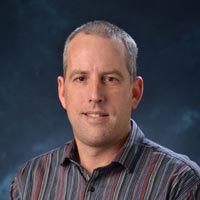 Scott Palo is the Charles Victor Schelke Endowed Professor of Aerospace Engineering at the University of Colorado Boulder. He has 20+ years of experience in higher education, is the director of the Space Technology Integration Lab and former Associate Dean for Research in the College of Engineering and Applied Science. Since 2001 he has been involved with the design, construction and operation of five (5) small satellites and is leading the development of three (3) more. Dr. Palo is an Associate Fellow of the AIAA, Senior Member of the IEEE and a member of the Commercial Small Satellite Spectrum Mangers Association. In 2018 Dr. Palo chose to follow his entrepreneurial sprit and co-founded Blue Cubed LLC, a new space startup company focused on the development of next generation communications technology to support the rapidly expanding small satellite market. Most recently Dr. Palo took on the role as the Associate Director of SpectrumX, the first National Science Foundation Spectrum Innovation Center.
Scott Palo is the Charles Victor Schelke Endowed Professor of Aerospace Engineering at the University of Colorado Boulder. He has 20+ years of experience in higher education, is the director of the Space Technology Integration Lab and former Associate Dean for Research in the College of Engineering and Applied Science. Since 2001 he has been involved with the design, construction and operation of five (5) small satellites and is leading the development of three (3) more. Dr. Palo is an Associate Fellow of the AIAA, Senior Member of the IEEE and a member of the Commercial Small Satellite Spectrum Mangers Association. In 2018 Dr. Palo chose to follow his entrepreneurial sprit and co-founded Blue Cubed LLC, a new space startup company focused on the development of next generation communications technology to support the rapidly expanding small satellite market. Most recently Dr. Palo took on the role as the Associate Director of SpectrumX, the first National Science Foundation Spectrum Innovation Center.
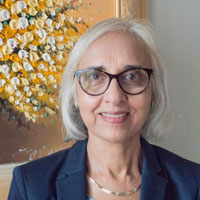 Shalini Periyalwar is currently an Expert Director, Communications Engineering at Innovation, Science and Economic Development Canada (ISED), where her primary focus is on various aspects of spectrum management, including strategies for spectrum sharing. Prior to her current role, she spent a few years at ISED’s Communications Research Center, supporting research in 5G and dynamic spectrum access. Shalini has over 25 years of experience in the wireless communications industry, working on advanced research in radio systems engineering and in supporting IP strategy. Over the course of her career, she has worked on research for all generations of wireless systems, with over a hundred U.S. patents granted. Shalini has also held academic positions and has published extensively in her academic roles.
Shalini Periyalwar is currently an Expert Director, Communications Engineering at Innovation, Science and Economic Development Canada (ISED), where her primary focus is on various aspects of spectrum management, including strategies for spectrum sharing. Prior to her current role, she spent a few years at ISED’s Communications Research Center, supporting research in 5G and dynamic spectrum access. Shalini has over 25 years of experience in the wireless communications industry, working on advanced research in radio systems engineering and in supporting IP strategy. Over the course of her career, she has worked on research for all generations of wireless systems, with over a hundred U.S. patents granted. Shalini has also held academic positions and has published extensively in her academic roles.
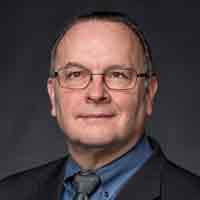 Tony Rennier is the founder and CEO of Foundry Inc., a spectrum engineering consulting firm that provides technical expertise, oversight, and guidance on technical issues related to spectrum sharing for spectrum communities of interest. He is currently the Chief Engineer for the AWS-3 Spectrum Sharing Test and Demonstration (SSTD) program which is operated by the Defense Information Systems Agency’s Defense Spectrum Organization (DSO). Before his work on SSTD, Mr. Rennier served as a lead technical contributor for DSO’s Advanced Access Initiatives branch, working on several initiatives including Commercial Broadband Radio Service. As an information technology professional, he served as the Chief Architect for DSO’s Global Electromagnetic Spectrum Information System program. Prior to his work in spectrum engineering, Mr. Rennier founded and ran two software products, services, and training firms. Mr. Rennier is an active member of the IEEE Dynamic Spectrum Access Networks Standards Committee (DySPAN-SC). He is the current Chair of P1900.5, the Policy Language and Architectures for Managing Cognitive Radio for Dynamic Spectrum Access Applications working group. His education includes a Bachelor of Electrical Engineering degree from Southern Illinois University, located in Edwardsville Illinois, and a Master of Electrical Engineering degree from the University of Illinois in Urbana Illinois.
Tony Rennier is the founder and CEO of Foundry Inc., a spectrum engineering consulting firm that provides technical expertise, oversight, and guidance on technical issues related to spectrum sharing for spectrum communities of interest. He is currently the Chief Engineer for the AWS-3 Spectrum Sharing Test and Demonstration (SSTD) program which is operated by the Defense Information Systems Agency’s Defense Spectrum Organization (DSO). Before his work on SSTD, Mr. Rennier served as a lead technical contributor for DSO’s Advanced Access Initiatives branch, working on several initiatives including Commercial Broadband Radio Service. As an information technology professional, he served as the Chief Architect for DSO’s Global Electromagnetic Spectrum Information System program. Prior to his work in spectrum engineering, Mr. Rennier founded and ran two software products, services, and training firms. Mr. Rennier is an active member of the IEEE Dynamic Spectrum Access Networks Standards Committee (DySPAN-SC). He is the current Chair of P1900.5, the Policy Language and Architectures for Managing Cognitive Radio for Dynamic Spectrum Access Applications working group. His education includes a Bachelor of Electrical Engineering degree from Southern Illinois University, located in Edwardsville Illinois, and a Master of Electrical Engineering degree from the University of Illinois in Urbana Illinois.
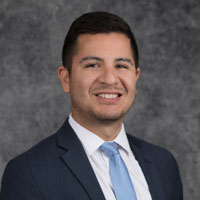 Edgar Rivas currently serves as Senator John Hickenlooper’s (D-CO) principal advisor on issues under the jurisdiction of the Senate Commerce, Science, & Transportation Committee including technology, telecommunications, cybersecurity, privacy, space, science, trade, and transportation issues. In this role, Edgar advances bipartisan legislation for the Senator, works with Senate offices and relevant stakeholders to conduct oversight over federal implementation of key programs, and closely monitors policy developments and their potential impact on Colorado and the United States. Prior to the Senate, he served in the U.S. House of Representatives managing Congressman Tom O’Halleran’s legislative efforts on the House Energy & Commerce Committee in areas such as telecommunications, technology, and privacy. Previously, Edgar served in various government relations capacities around Washington, and contributed toward political campaigns in 2012 in Northern Virginia. A native of Northern Virginia, Edgar received his Bachelor’s in International Relations and his Master’s in Public Policy from George Mason University.
Edgar Rivas currently serves as Senator John Hickenlooper’s (D-CO) principal advisor on issues under the jurisdiction of the Senate Commerce, Science, & Transportation Committee including technology, telecommunications, cybersecurity, privacy, space, science, trade, and transportation issues. In this role, Edgar advances bipartisan legislation for the Senator, works with Senate offices and relevant stakeholders to conduct oversight over federal implementation of key programs, and closely monitors policy developments and their potential impact on Colorado and the United States. Prior to the Senate, he served in the U.S. House of Representatives managing Congressman Tom O’Halleran’s legislative efforts on the House Energy & Commerce Committee in areas such as telecommunications, technology, and privacy. Previously, Edgar served in various government relations capacities around Washington, and contributed toward political campaigns in 2012 in Northern Virginia. A native of Northern Virginia, Edgar received his Bachelor’s in International Relations and his Master’s in Public Policy from George Mason University.
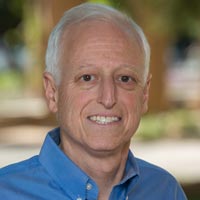 Greg Rosston is Director of the Public Policy program at Stanford University, the Gordon Cain Senior Fellow at the Stanford Institute for Economic Policy Research (SIEPR), and Professor of Economics (by courtesy). He teaches Economics and Public Policy courses on competition policy and strategy, economic policy analysis, and writing and rhetoric. Dr. Rosston served as Deputy Chief Economist at the Federal Communications Commission working on the implementation of the Telecommunications Act of 1996 and the design and implementation of the first ever spectrum auctions in the United States. In 2011, he was Senior Economist for Transactions for the Federal Communications Commission for the proposed AT&T – T-Mobile transaction. He served as a member and co-chair of the Department of Commerce Spectrum Management Advisory Committee from 2010–2014. Dr. Rosston received his Ph.D. in Economics from Stanford University and his A.B. with Honors from University of California at Berkeley. He serves on the Board of the Stanford Federal Credit Union and the Nepal Youth Foundation and as an Advisory Board member of Sustainable Conservation and the Technology Policy Institute.
Greg Rosston is Director of the Public Policy program at Stanford University, the Gordon Cain Senior Fellow at the Stanford Institute for Economic Policy Research (SIEPR), and Professor of Economics (by courtesy). He teaches Economics and Public Policy courses on competition policy and strategy, economic policy analysis, and writing and rhetoric. Dr. Rosston served as Deputy Chief Economist at the Federal Communications Commission working on the implementation of the Telecommunications Act of 1996 and the design and implementation of the first ever spectrum auctions in the United States. In 2011, he was Senior Economist for Transactions for the Federal Communications Commission for the proposed AT&T – T-Mobile transaction. He served as a member and co-chair of the Department of Commerce Spectrum Management Advisory Committee from 2010–2014. Dr. Rosston received his Ph.D. in Economics from Stanford University and his A.B. with Honors from University of California at Berkeley. He serves on the Board of the Stanford Federal Credit Union and the Nepal Youth Foundation and as an Advisory Board member of Sustainable Conservation and the Technology Policy Institute.
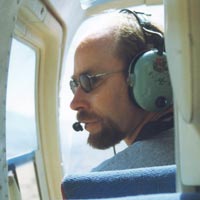 Frank Sanders is Senior Technical Fellow at NTIA’s Institute for Telecommunication Sciences (ITS) laboratory in Boulder, Colorado. His work since 1979 has focused on spectrum occupancy, spectrum sharing, and interference studies with emphasis on radar systems. He is a subject matter expert on analysis and resolution of electromagnetic compatibility problems between systems, as well as on best practices for monitoring and measuring spectrum usage by radio systems including mobile radios, digital communication links, point-to-point microwave links, earth stations and radars. He is also a subject matter expert on radar design, radar spectrum emissions and radar sensitivity to interference. His publications have been widely used in the areas of spectrum sharing, electromagnetic compatibility, interference resolution and radars. He has authored and co-authored over 80 NTIA Technical Reports and related publications, including primary authorship of ITU-R Recommendation M.1177, the international best-practices reference for measuring radar emissions for spectrum compliance purposes.
Frank Sanders is Senior Technical Fellow at NTIA’s Institute for Telecommunication Sciences (ITS) laboratory in Boulder, Colorado. His work since 1979 has focused on spectrum occupancy, spectrum sharing, and interference studies with emphasis on radar systems. He is a subject matter expert on analysis and resolution of electromagnetic compatibility problems between systems, as well as on best practices for monitoring and measuring spectrum usage by radio systems including mobile radios, digital communication links, point-to-point microwave links, earth stations and radars. He is also a subject matter expert on radar design, radar spectrum emissions and radar sensitivity to interference. His publications have been widely used in the areas of spectrum sharing, electromagnetic compatibility, interference resolution and radars. He has authored and co-authored over 80 NTIA Technical Reports and related publications, including primary authorship of ITU-R Recommendation M.1177, the international best-practices reference for measuring radar emissions for spectrum compliance purposes.
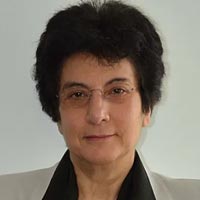 Sana Salous (SM’95) Fellow of the Institution of Engineering and Technology (FIET) and a Fellow of the International Union of Radio Science (FURSI), received the B.E.E. degree from the American University of Beirut, Beirut, Lebanon, in 1978, and the M.Sc. and Ph.D. degrees from Birmingham University, Birmingham, U.K., in 1979 and 1984, respectively. She was an Assistant Professor with Yarmouk University, Irbid, Jordan, for four years followed by a one-year Research Fellowship at Liverpool University, Liverpool, U.K. She held a lectureship with the University of Manchester Institute of Science and Technology, Manchester, U.K., in 1989, where she was subsequently a Senior Lecturer and then a Reader. Since 2003, she has been the Chair of Communications Engineering, Durham University, Durham, U.K., where she is the Director of the Centre for Communication Systems. Her research interests include radio channel characterization from skywave in the HF band to millimeter-wave bands, the design of radar waveforms, and novel radio channel sounders and radar systems for radio imaging. She was the Chair of Commission C on Radio Communication and Signal Processing Systems of URSI from 2014 to 2017 and is the Editor-in-Chief of the journal Radio Science, a publication of the American Geophysical Union.
Sana Salous (SM’95) Fellow of the Institution of Engineering and Technology (FIET) and a Fellow of the International Union of Radio Science (FURSI), received the B.E.E. degree from the American University of Beirut, Beirut, Lebanon, in 1978, and the M.Sc. and Ph.D. degrees from Birmingham University, Birmingham, U.K., in 1979 and 1984, respectively. She was an Assistant Professor with Yarmouk University, Irbid, Jordan, for four years followed by a one-year Research Fellowship at Liverpool University, Liverpool, U.K. She held a lectureship with the University of Manchester Institute of Science and Technology, Manchester, U.K., in 1989, where she was subsequently a Senior Lecturer and then a Reader. Since 2003, she has been the Chair of Communications Engineering, Durham University, Durham, U.K., where she is the Director of the Centre for Communication Systems. Her research interests include radio channel characterization from skywave in the HF band to millimeter-wave bands, the design of radar waveforms, and novel radio channel sounders and radar systems for radio imaging. She was the Chair of Commission C on Radio Communication and Signal Processing Systems of URSI from 2014 to 2017 and is the Editor-in-Chief of the journal Radio Science, a publication of the American Geophysical Union.
 Neeti Tandon is a Technical Fellow and Distinguished Member of Technical Staff at AT&T. She provides key engineering support to the Federal Regulatory, Legal, Corporate Development, and CTO organizations in technical aspects of spectrum strategy, regulatory positions, spectrum management, valuation/acquisition, and co-existence issues. Neeti began her career with AT&T in 1995 and has worked on a broad array of wireless topics including network modeling, radio capacity modeling, interference analysis, spectrum sharing and co-existence, and network deployment best practices. She has represented AT&T, and frequently holds leadership positions, in numerous external standards bodies and spectrum related industry forums, standard setting committees, and FCC directed multi-stakeholder interest groups where personnel from across relevant industries and government services debate key spectrum issues and develop consensus positions, parameters, and technical approaches.
Neeti Tandon is a Technical Fellow and Distinguished Member of Technical Staff at AT&T. She provides key engineering support to the Federal Regulatory, Legal, Corporate Development, and CTO organizations in technical aspects of spectrum strategy, regulatory positions, spectrum management, valuation/acquisition, and co-existence issues. Neeti began her career with AT&T in 1995 and has worked on a broad array of wireless topics including network modeling, radio capacity modeling, interference analysis, spectrum sharing and co-existence, and network deployment best practices. She has represented AT&T, and frequently holds leadership positions, in numerous external standards bodies and spectrum related industry forums, standard setting committees, and FCC directed multi-stakeholder interest groups where personnel from across relevant industries and government services debate key spectrum issues and develop consensus positions, parameters, and technical approaches.
 Peter Tenhula recently retired from federal government service, having worked for nearly 25 years at the National Telecommunications and Information Administration (NTIA) in the U.S. Department of Commerce and at the Federal Communications Commission (FCC), with a six-year stint in-between at a radio technology start-up. From 2014 to April 2021, Peter served as Deputy Associate Administrator in NTIA’s Office of Spectrum Management (OSM). He also served as the Chair of the Interdepartment Radio Advisory Committee (IRAC). Prior to joining OSM, Peter was a Senior Advisor in NTIA’s Office of the Assistant Secretary. Before joining NTIA in 2012, Mr. Tenhula worked at Shared Spectrum Company (SSC), serving as the company’s vice president and general counsel. While at SSC, he was a member of the Board of Directors of the Wireless Innovation Forum and chaired its Regulatory Committee. From 1990 to 2006, Peter held several positions at the FCC, including Acting Deputy Chief of the Wireless Telecommunications Bureau, director and co-director of the Spectrum Policy Task Force, Senior Legal Advisor to FCC Chairman Michael Powell, Special Counsel to General Counsel William Kennard, and staff attorney in the Office of General Counsel and the Mass Media Bureau. He received his undergraduate degree in telecommunications from Indiana University, Bloomington, and earned a law degree from Washington University in St. Louis, Missouri.
Peter Tenhula recently retired from federal government service, having worked for nearly 25 years at the National Telecommunications and Information Administration (NTIA) in the U.S. Department of Commerce and at the Federal Communications Commission (FCC), with a six-year stint in-between at a radio technology start-up. From 2014 to April 2021, Peter served as Deputy Associate Administrator in NTIA’s Office of Spectrum Management (OSM). He also served as the Chair of the Interdepartment Radio Advisory Committee (IRAC). Prior to joining OSM, Peter was a Senior Advisor in NTIA’s Office of the Assistant Secretary. Before joining NTIA in 2012, Mr. Tenhula worked at Shared Spectrum Company (SSC), serving as the company’s vice president and general counsel. While at SSC, he was a member of the Board of Directors of the Wireless Innovation Forum and chaired its Regulatory Committee. From 1990 to 2006, Peter held several positions at the FCC, including Acting Deputy Chief of the Wireless Telecommunications Bureau, director and co-director of the Spectrum Policy Task Force, Senior Legal Advisor to FCC Chairman Michael Powell, Special Counsel to General Counsel William Kennard, and staff attorney in the Office of General Counsel and the Mass Media Bureau. He received his undergraduate degree in telecommunications from Indiana University, Bloomington, and earned a law degree from Washington University in St. Louis, Missouri.
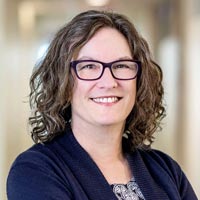 Suzanne Tetreault is a partner at the law firm of Wilkinson Barker Knauer, LLP, specializing in a wide variety of regulatory issues. Previously, Suzanne worked for nearly 30 years at the Federal Communications Commission, where she played a role in numerous seminal developments in communications law, from implementing the Telecommunications Act of 1996 to addressing the urgent infrastructure needs of 5G. She served in numerous senior management roles across the agency, including Deputy Chief of the Wireless Telecommunications Bureau, Deputy General Counsel for Administrative Law, Deputy Chief and Acting Chief of the Enforcement Bureau, Acting Deputy Chief of the Consumer and Governmental Affairs Bureau, and Acting Deputy Chief of the Wireline Competition Bureau. Suzanne holds a B.A. in Economics from Harvard College and a J.D. from Harvard Law School.
Suzanne Tetreault is a partner at the law firm of Wilkinson Barker Knauer, LLP, specializing in a wide variety of regulatory issues. Previously, Suzanne worked for nearly 30 years at the Federal Communications Commission, where she played a role in numerous seminal developments in communications law, from implementing the Telecommunications Act of 1996 to addressing the urgent infrastructure needs of 5G. She served in numerous senior management roles across the agency, including Deputy Chief of the Wireless Telecommunications Bureau, Deputy General Counsel for Administrative Law, Deputy Chief and Acting Chief of the Enforcement Bureau, Acting Deputy Chief of the Consumer and Governmental Affairs Bureau, and Acting Deputy Chief of the Wireline Competition Bureau. Suzanne holds a B.A. in Economics from Harvard College and a J.D. from Harvard Law School.
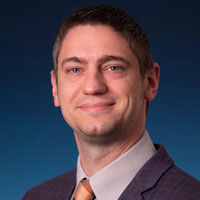 Paul Tilghman is the Senior Director of Azure Spectrum Technologies at Microsoft, where he focuses on the intersection of wireless communications, software radio, and virtualization technology with the cloud. The team is responsible for cloud-borne software radio, and access to Azure anywhere on the planet, at any security level through terrestrial (5G) and space-based (SATCOM) wireless communications. Prior to joining Microsoft in 2019, Paul was a Program Manager at the Defense Advanced Research Projects Agency (DARPA) where he defined and led cornerstone programs of the nation’s wireless & AI research portfolio. While at DARPA Paul fielded the first Electronic Warfare systems to employ AI, created a program to build next-generation waferscale super computers for wireless emulation, launched the RF Machine Learning Systems program which created the world’s first neural networks designed for RF signal processing, and created the Spectrum Collaboration Challenge in which winning teams created collaborative AI systems to dynamically manage shared spectrum. Prior to joining DARPA, Paul was a senior research engineer at Lockheed Martin’s Advanced Technology Laboratories where he led programs in adaptive electronic warfare, signals intelligence and non-cooperative geolocation.
Paul Tilghman is the Senior Director of Azure Spectrum Technologies at Microsoft, where he focuses on the intersection of wireless communications, software radio, and virtualization technology with the cloud. The team is responsible for cloud-borne software radio, and access to Azure anywhere on the planet, at any security level through terrestrial (5G) and space-based (SATCOM) wireless communications. Prior to joining Microsoft in 2019, Paul was a Program Manager at the Defense Advanced Research Projects Agency (DARPA) where he defined and led cornerstone programs of the nation’s wireless & AI research portfolio. While at DARPA Paul fielded the first Electronic Warfare systems to employ AI, created a program to build next-generation waferscale super computers for wireless emulation, launched the RF Machine Learning Systems program which created the world’s first neural networks designed for RF signal processing, and created the Spectrum Collaboration Challenge in which winning teams created collaborative AI systems to dynamically manage shared spectrum. Prior to joining DARPA, Paul was a senior research engineer at Lockheed Martin’s Advanced Technology Laboratories where he led programs in adaptive electronic warfare, signals intelligence and non-cooperative geolocation.
 Bryan Tramont is widely recognized as one of the nation’s top media and communications lawyers. A relentless advocate, Bryan is sought after by clients ranging from Fortune 50 companies to innovative startups for his exceptional understanding of spectrum management, transactions and strategic advocacy before multiple regulatory agencies. His commitment to excellence brings both loyal clients and leading industry honors. Bryan’s years as Chief of Staff at the Federal Communications Commission under Chairman Michael Powell, along with his earlier work at the agency and beyond, give him a profound understanding of the often complex legal, political and regulatory environments where his clients operate. His keen instincts for achieving results have been honed at the center of the industry. In addition to his role as Managing Partner, Bryan also leads the strategy and implementation of WBK’s award-winning communications, media and technology team, and directs client management and development. Bryan lives by the pay it forward ethos, a philosophy he’s helped to infuse throughout WBK. He gives generously of his time and talents to support the community. Whether as a speaker, educator or thought-leader, Bryan is always focused on helping others succeed and encouraging the next generation to thrive.
Bryan Tramont is widely recognized as one of the nation’s top media and communications lawyers. A relentless advocate, Bryan is sought after by clients ranging from Fortune 50 companies to innovative startups for his exceptional understanding of spectrum management, transactions and strategic advocacy before multiple regulatory agencies. His commitment to excellence brings both loyal clients and leading industry honors. Bryan’s years as Chief of Staff at the Federal Communications Commission under Chairman Michael Powell, along with his earlier work at the agency and beyond, give him a profound understanding of the often complex legal, political and regulatory environments where his clients operate. His keen instincts for achieving results have been honed at the center of the industry. In addition to his role as Managing Partner, Bryan also leads the strategy and implementation of WBK’s award-winning communications, media and technology team, and directs client management and development. Bryan lives by the pay it forward ethos, a philosophy he’s helped to infuse throughout WBK. He gives generously of his time and talents to support the community. Whether as a speaker, educator or thought-leader, Bryan is always focused on helping others succeed and encouraging the next generation to thrive.
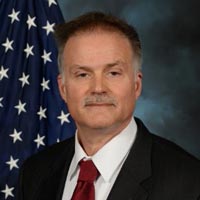 Gregory C. Wagner is the Chief of the Strategic Planning Division (SPD) at the Defense Information Systems Agency (DISA) Defense Spectrum Organization (DSO). He provides leadership and oversight for the SPD portfolio including national & international strategic electromagnetic spectrum (EMS) planning, the Defense EMS Enterprise Architecture, development, operation and sustainment of DoD EMS sharing systems, enterprise level data standards and exchange mechanisms, national and international spectrum outreach, and development of next generation spectrum models and algorithms. Prior to this assignment, Mr. Wagner was the chief of the Strategic and Regulatory Initiatives branch within SPD. Prior to joining DISA, Mr. Wagner was Network Operations Chief for the Army’s Project Manager Warfighter Information Network – Tactical under Program Executive Office (PEO) Command, Control, and Communications – Tactical (C3T), where he was responsible for the design, development, and deployment of cyber, spectrum, and network management tools throughout the tactical Army. Prior to federal service, Mr. Wagner held a variety of leadership and technical positions at Northrup Grumman, Johns Hopkins University Applied Physics Laboratory, and the IIT Research Institute. Mr. Wagner also owned and operated a consulting business specializing in requirements analysis and systems engineering support. Mr. Wagner has a BSEE from West Virginia University, a Masters in Engineering Administration from George Washington University (GWU), and a MSEE from Johns Hopkins University. He is a graduate of the senior course in National Security Leadership at GWU and received a Cyber Leadership certificate from the National Defense University. Mr. Wagner is designated DAWIA Level III in System Engineering and Level I in Program Management, and is a previous member of the Army Acquisition Corps.
Gregory C. Wagner is the Chief of the Strategic Planning Division (SPD) at the Defense Information Systems Agency (DISA) Defense Spectrum Organization (DSO). He provides leadership and oversight for the SPD portfolio including national & international strategic electromagnetic spectrum (EMS) planning, the Defense EMS Enterprise Architecture, development, operation and sustainment of DoD EMS sharing systems, enterprise level data standards and exchange mechanisms, national and international spectrum outreach, and development of next generation spectrum models and algorithms. Prior to this assignment, Mr. Wagner was the chief of the Strategic and Regulatory Initiatives branch within SPD. Prior to joining DISA, Mr. Wagner was Network Operations Chief for the Army’s Project Manager Warfighter Information Network – Tactical under Program Executive Office (PEO) Command, Control, and Communications – Tactical (C3T), where he was responsible for the design, development, and deployment of cyber, spectrum, and network management tools throughout the tactical Army. Prior to federal service, Mr. Wagner held a variety of leadership and technical positions at Northrup Grumman, Johns Hopkins University Applied Physics Laboratory, and the IIT Research Institute. Mr. Wagner also owned and operated a consulting business specializing in requirements analysis and systems engineering support. Mr. Wagner has a BSEE from West Virginia University, a Masters in Engineering Administration from George Washington University (GWU), and a MSEE from Johns Hopkins University. He is a graduate of the senior course in National Security Leadership at GWU and received a Cyber Leadership certificate from the National Defense University. Mr. Wagner is designated DAWIA Level III in System Engineering and Level I in Program Management, and is a previous member of the Army Acquisition Corps.
 Martin B.H. Weiss is a Professor in the Department of Informatics and Networked Systems in the School of Computing and Information and is Associate Director of the Center for Governance and Markets at the University of Pittsburgh. He earned his PhD. in Engineering and Public Policy from Carnegie Mellon University. He earned an MSE in Computer, Control, and Information Engineering from the University of Michigan and a BSE in Electrical Engineering from Northeastern University. His overall research theme is the analysis of situations where competing firms must cooperate technically; this has expressed itself in studying the standardization process, internet interconnection, and, most recently, radio spectrum sharing. His current research focus is on the governance of technological systems and infrastructures. He has been studying dynamic spectrum access, blockchains, and emerging smart city applications. Recent aspects of this have involved studying enforcement in cooperative spectrum sharing approaches, governance of spectrum, and applications of and governance of blockchain systems. Past projects include technical and cost studies of new technologies, bandwidth markets, interconnection of packet networks that support quality of service (QoS), and technical standards.
Martin B.H. Weiss is a Professor in the Department of Informatics and Networked Systems in the School of Computing and Information and is Associate Director of the Center for Governance and Markets at the University of Pittsburgh. He earned his PhD. in Engineering and Public Policy from Carnegie Mellon University. He earned an MSE in Computer, Control, and Information Engineering from the University of Michigan and a BSE in Electrical Engineering from Northeastern University. His overall research theme is the analysis of situations where competing firms must cooperate technically; this has expressed itself in studying the standardization process, internet interconnection, and, most recently, radio spectrum sharing. His current research focus is on the governance of technological systems and infrastructures. He has been studying dynamic spectrum access, blockchains, and emerging smart city applications. Recent aspects of this have involved studying enforcement in cooperative spectrum sharing approaches, governance of spectrum, and applications of and governance of blockchain systems. Past projects include technical and cost studies of new technologies, bandwidth markets, interconnection of packet networks that support quality of service (QoS), and technical standards.



